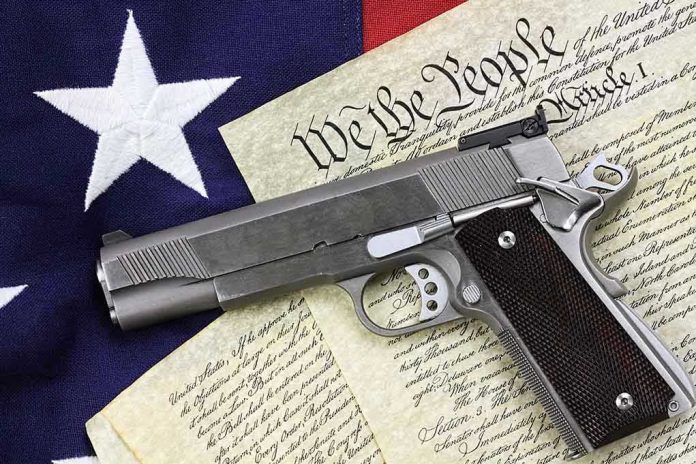
Washington’s ban on large-capacity ammunition magazines is upheld, threatening Second Amendment rights and sparking a potential Supreme Court showdown.
Story Snapshot
- Washington Supreme Court upholds ban on magazines over 10 rounds.
- Decision impacts Second Amendment rights, triggering legal challenges.
- Gun shop petitions U.S. Supreme Court for review.
Washington Supreme Court Ruling
The Washington Supreme Court upheld a 2022 state law banning the sale, transfer, and manufacture of large-capacity ammunition magazines exceeding ten rounds, concluding they are not protected “arms” under the Second Amendment. This decision, made in a 7-2 ruling, reverses a lower court’s decision that had deemed the ban unconstitutional. The court argued that limiting magazine capacity does not impede the core right to self-defense, as firearms remain functional with ten-round magazines.
The challenge originated from Gator’s Custom Guns, a local gun shop, which continued selling large-capacity magazines despite the ban and argued that the restriction violated constitutional rights. Following the state Supreme Court’s decision, the shop and its legal allies have petitioned the U.S. Supreme Court to review the ruling, citing a division among jurisdictions on whether such magazines qualify as “arms” protected by the Second Amendment.
Background and Context
Washington’s ban was enacted in 2022, aiming to curb the lethality of mass shootings by restricting high-capacity magazines, while allowing the possession of already-owned magazines. This legislation reflects a growing trend among states to impose stricter gun control measures, leading to clashes over the interpretation of Second Amendment rights. The state’s Attorney General’s office, which enforced the law, views the ban as a necessary public safety measure.
The legal landscape surrounding gun rights and accessory regulations remains contentious, with federal and state courts divided on whether high-capacity magazines are protected under the “common use” doctrine. Washington’s decision is seen as a significant articulation that these magazines are not essential to the self-defense right, thus not covered under constitutional protections—sparking a potential ripple effect in other jurisdictions.
Implications and Next Steps
If the U.S. Supreme Court agrees to review the case and potentially overturns Washington’s decision, this could invalidate similar bans nationwide, reinforcing broader Second Amendment protections. Conversely, if the Court denies review, Washington’s ruling may serve as a precedent for other states considering similar restrictions. The ongoing legal battles underscore a pivotal moment for gun rights advocates and regulators alike, as they navigate the complex interplay of state and federal law.
The outcome of this case holds significant implications for gun owners, retailers, and policymakers, with potential impacts on sales practices and regulatory frameworks. As the nation awaits the Supreme Court’s decision on certiorari, stakeholders on both sides brace for a landmark ruling that could redefine the boundaries of the Second Amendment.
Sources:
Seattle Times (PDF), May 8, 2025



